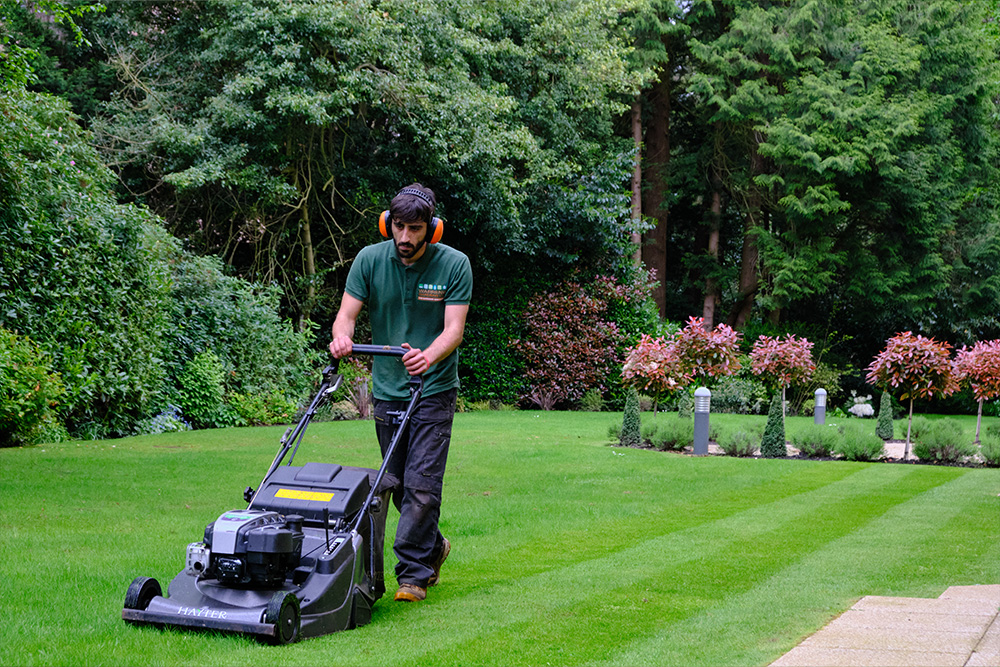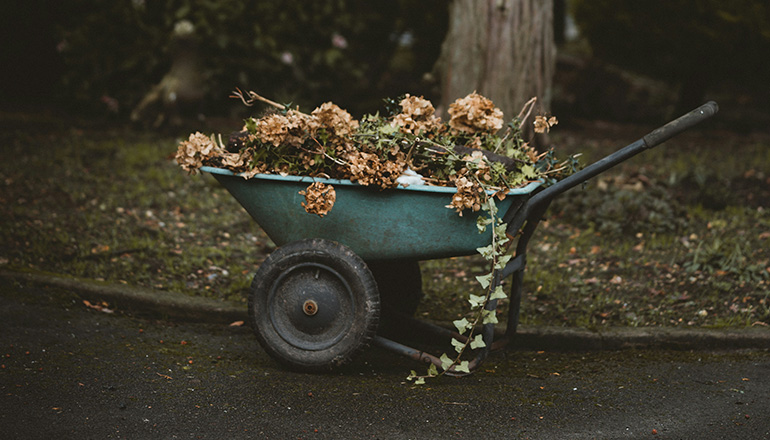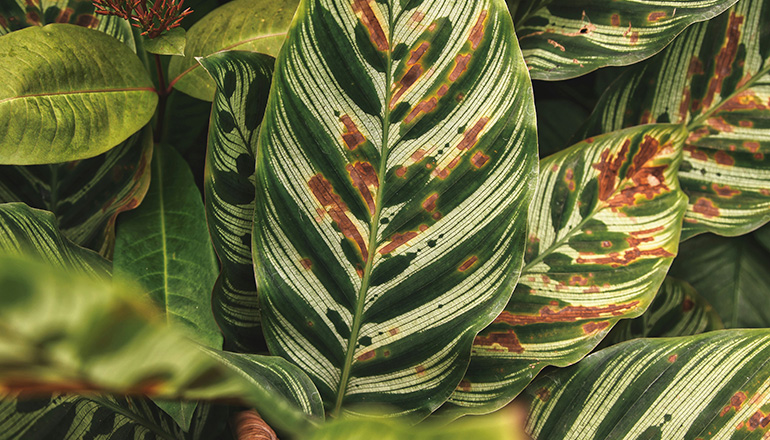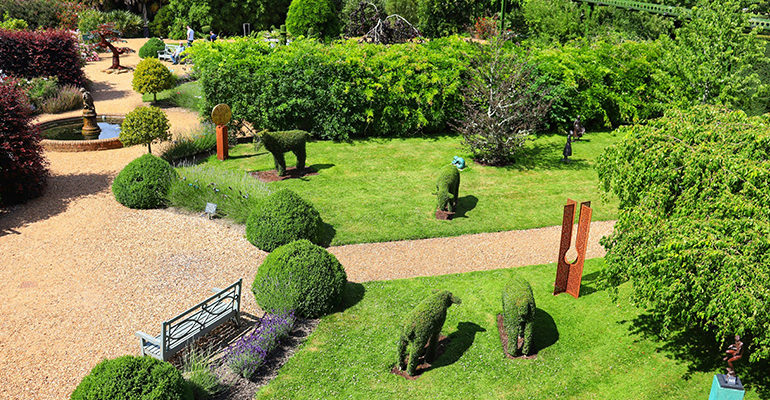Summer is a delightful time for gardens here on the south coast of England. The long days and warm weather allow plants to thrive and gardens to reach their peak. However, the season also brings challenges such as heatwaves, pests, and the need for regular upkeep. To help you keep your garden looking its best throughout the summer, here are some essential maintenance tips from Warrens Gardens, your local garden experts.
In this gardening post we cover:
Efficient Watering Strategies
Summer Lawn Care
Pruning and Deadheading
Pest and Disease Management
Maintaining Soil Health
Efficient Watering Strategies
When is the best time to water my garden?
Watering your garden during the early morning or late evening helps minimise water evaporation and ensures plants absorb the moisture they need. Avoid watering during the hottest part of the day to prevent water loss and potential plant scorch.
How often should I water my plants?
Instead of frequent shallow watering, opt for deep and infrequent watering. This encourages roots to grow deeper, making plants more drought-resistant. Aim to soak the soil to a depth of about 6-8 inches.
How can I keep my plants soil moist?
Applying a layer of organic mulch around plants helps retain soil moisture, suppress weeds, and regulate soil temperature. Mulches like wood chips, straw, or compost are excellent choices.
Install Drip Irrigation
For efficient water use, consider installing a drip irrigation system. It delivers water directly to the base of plants, reducing waste and ensuring consistent moisture levels.
Summer Lawn Care
How often should I mow my lawn?
Keep your garden looking its best by mowing the lawn regularly. Set your mower blades to a higher setting (3-4 inches) during summer to encourage deeper root growth and reduce stress on the grass. Avoid cutting more than one-third of the grass height at once.
What should I feed my lawn with?
Feed your lawn with a high-nitrogen fertiliser to promote lush, green growth. Apply fertiliser early in the summer and follow up with a slow-release fertiliser to sustain growth through the season.
What is the best way to remove and prevent weeds?
Remove weeds manually or use a selective herbicide to target them without harming your grass. Staying on top of weed growth prevents them from seeding and spreading.

Pruning and Deadheading
How often should I deadhead flowers?
Regularly deadhead spent flowers on annuals, perennials, and roses to encourage continuous blooming and maintain a tidy appearance. This redirects the plant’s energy into producing more flowers rather than seed development.
When should I prune my shrubs?
Summer is a good time to prune spring-flowering shrubs once they have finished blooming. Trim hedges to maintain their shape and encourage healthy growth. Avoid heavy pruning during peak heat, as it can stress the plants.
How do I control growth of my plants?
For plants that tend to become leggy or overgrown, such as lavender and herbs, light pruning helps maintain a compact shape and promotes healthy new growth.

Pest and Disease Management
What are common signs of pests of diseases?
Inspect your garden regularly for signs of pests or diseases. Look for discoloured leaves, holes in foliage, or unusual growth patterns. Early detection allows for prompt action before issues become severe.
What is a good natural pest control?
Encourage natural predators like ladybirds and birds by creating a wildlife-friendly environment. Use neem oil or insecticidal soap as a natural remedy for common pests like aphids and spider mites.
How do I prevent my plants getting fungal diseases?
To prevent fungal diseases, water the soil directly rather than wetting the foliage. Ensure good air circulation by spacing plants appropriately and removing dead or diseased plant material promptly.

Maintaining Soil Health
What should I feed my plants with?
Feed your plants with a balanced fertiliser to provide essential nutrients during the growing season. Use slow-release or organic fertilisers to promote steady growth without the risk of over-fertilisation.
How do I test my soil?
Testing your soil is crucial for understanding its composition and nutrient levels, which can significantly impact plant health and growth. To test your soil, start by collecting a sample: use a clean trowel to gather soil from several locations in your garden, mix these samples in a clean bucket, and remove debris like stones or roots. For a detailed analysis, send your soil sample to a local extension service or a professional lab, which will provide a comprehensive report on pH levels, nutrient content, and organic matter. Alternatively, you can use a home soil testing kit for a quick assessment, which typically involves mixing soil with a test solution and comparing the colour change to a chart. Regular soil testing helps you make informed decisions about fertilisation, pH adjustment, and soil amendments, ensuring optimal conditions for your plants.
Should I add compost to my soil?
Add compost to your soil to improve its structure, moisture retention, and nutrient content. Composting also helps recycle garden waste and reduce the need for chemical fertilisers.
Enjoying Your Garden
Create a Relaxing Space
Enhance your garden’s enjoyment by creating comfortable seating areas. Add garden furniture, hammocks, or benches in shaded spots to relax and appreciate your hard work.
Incorporate Outdoor Lighting
Install outdoor lighting to extend the usability of your garden into the evening. Solar-powered lights, lanterns, or string lights create a cozy and inviting atmosphere.
Attract Wildlife
Add bird feeders, bird baths, and insect hotels to attract wildlife to your garden. Watching birds, butterflies, and other creatures adds a dynamic and enjoyable element to your outdoor space.
Conclusion
With these summer garden maintenance tips, your garden in Dorset can flourish even in the warmest months. From efficient watering and lawn care to pest management and soil health, these practices ensure your garden remains vibrant and healthy. If you need professional help or advice, Warrens Gardens is here to assist with all your garden maintenance needs. Contact us today to keep your garden at its best all summer long.
Contact Warrens Gardens
For expert garden services in Bournemouth, Poole, Christchurch and surrounding areas, get in touch with Warrens Gardens. Whether you need help with lawn care, pruning, or pest control, our experienced team is here to help. Contact us today for a free quote.




